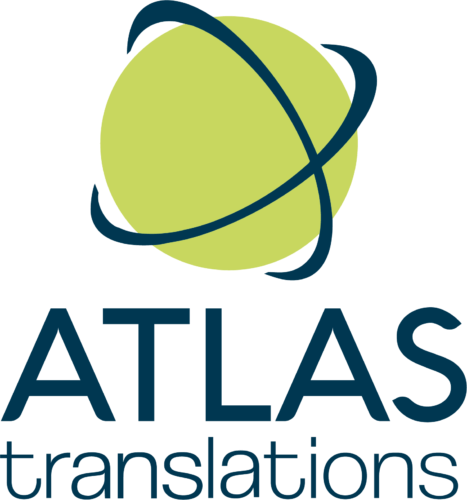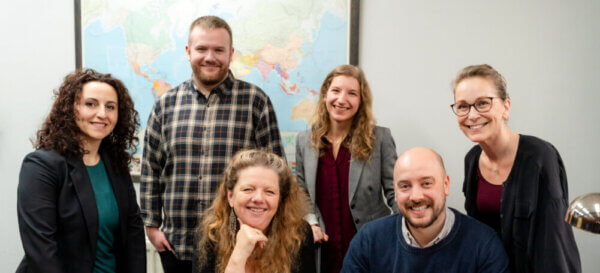Cultural Sensitivity in Pharma Advertising: 6 Localisation Steps for Global Reach
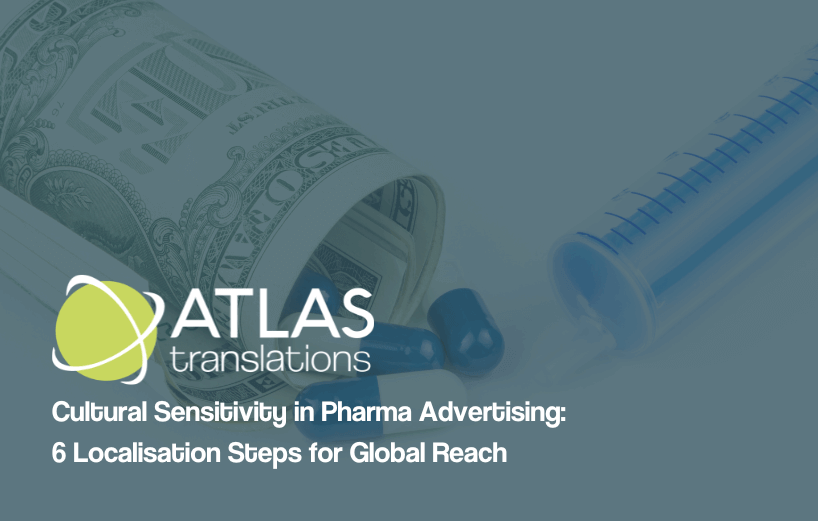
Our world is more connected than ever. With that come huge opportunities for pharma firms to reach new audiences. But it’s not as simple as translating an advert and calling it a day. If your marketing materials don’t reflect an understanding of cultural nuances, they risk falling flat—or worse, causing offence. This week’s blog covers Cultural Sensitivity in Pharma Advertising: Six Localisation Steps for Global Reach. Read on for easy-to-implement steps to help bump your pharma advertising campaign from “meh” to “yeah!”
Cultural sensitivity isn’t just about being polite (although that honestly doesn’t hurt!). It’s about creating campaigns that resonate with people on a deeper level, helping your message break through language barriers and cultural divides. By localising your advertising with care, you can turn global opportunities into real success stories.
1. Understanding Cultural Sensitivity in Global Reach
In the world of health and wellness, cultural perceptions are deeply rooted in centuries of tradition, religion, and social norms. Encouraged in one culture, however, might be perceived as off-putting in another. For example, approaches to discussing mental health, chronic illnesses, or even basic hygiene practices can differ significantly from one region to another.
Key Strategies:
- Gather insights directly from the source: Run focus groups, interviews, and surveys with locals to understand how they view health and wellness. Are they more likely to trust herbal remedies or cutting-edge technology? Do they prefer to see a female doctor or a male?
- Hire outside consultants: Cultural specialists and interpreters can provide invaluable advice on local customs, taboos, and preferred ways of communication. They’ll help you steer clear of embarrassing pitfalls.
🤝 The more effort you put into understanding your audience, the more authentic and effective your campaign will be.
2. Adapting Your Language and Messaging
We’ve all come across those notorious examples of literal translations gone horribly wrong. They can be amusing on social media. Unfortunately, they undermine cultural sensitivity in pharmaceutical ad campaigns. In health communication, accuracy is paramount. Your credibility and your message risk damage through translation missteps.
This is where localisation takes centre stage. Localisation goes beyond translation, adapting the tone, terminology, and style to suit the cultural context. Think about how people describe symptoms or treatment outcomes—language isn’t just about words; it’s about meaning.
Key Strategies:
- Work with translation and localisation professionals: Experts like Atlas Translations know how to tailor content to different regions, ensuring accuracy and cultural relevance.
- Choose the right tone: Does your audience prefer formal, scientific language or something friendlier and conversational? Small tweaks can make a big difference in building trust.
- Incorporate local idioms: Where appropriate, a touch of colloquial language can make your campaign more relatable and human.
🗣️ Adapting your language and messaging will build trust and make your advertising more meaningful to local audiences.
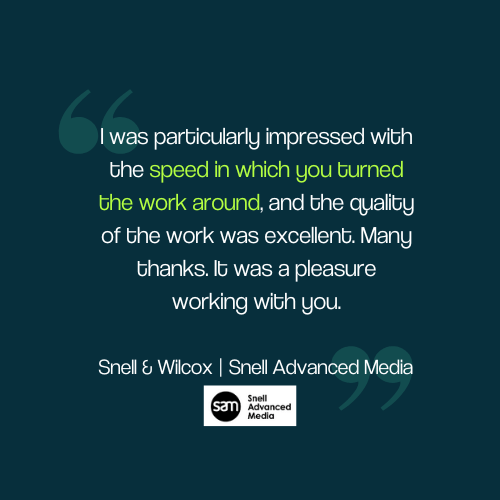
3. Visual Elements and Branding
Although words can carry meaning, visuals are can be more impactful. The colours, images, and symbols you choose for your campaign can evoke very different emotions depending on the cultural lens. In China, red means luck and happiness. In other places it symbolizes a warning or danger.
Certain imagery may clash with cultural norms or expectations. In some cultures, privacy and modesty are prized. Using people’s pictures can be frowned upon.
Key Strategies:
- Research colour psychology: Know what colours represent in your target regions.
- Select imagery that speaks to your audience: Are you advertising in regions with strong family-oriented values? If so, pictures of families might resonate more than individuals.
- Test visuals with local audiences: A simple pre-launch test can prevent costly missteps.
👀 Ensuring your visuals and branding are culturally appropriate will make your campaign feel relevant and respectful, building stronger connections with your audience.
4. Considering Regulatory and Ethical Standards
Advertising in the pharmaceutical industry is a minefield of regulations that change depending on where you’re marketing. What’s acceptable in one country might not even be legal in another. On top of that, ethical considerations should always be front of mind.
For instance, does your pharma advertising campaign avoid overpromising results? Is it clear and honest about potential side effects? Meeting ethical standards isn’t just about compliance—it’s about building trust.
Key Strategies:
- Stay informed: Work with legal advisors who specialise in pharmaceutical regulations in your target regions.
- Create a compliance checklist: Keep track of regional rules to ensure every piece of content passes muster.
- Focus on transparency: Be upfront about benefits and risks—it’s the cornerstone of ethical marketing.
⚖️ By adhering to local regulations and maintaining high ethical standards, you’ll ensure your campaign is compliant, credible, and trustworthy.
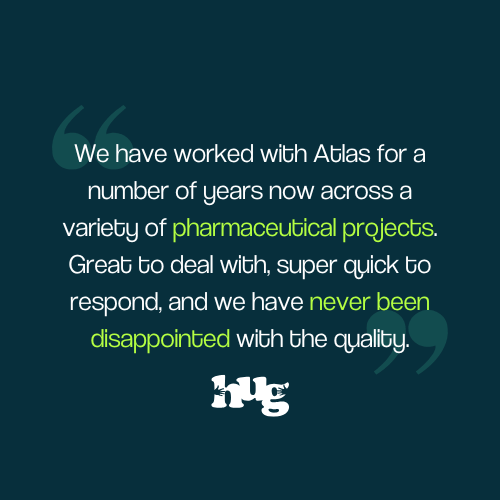
5. Leveraging Local Influencers and Partnerships
Sometimes the best way to connect with an audience is through someone they already trust. Influencers can help spread your message authentically. This can include healthcare pros and social media stars.
Local partnerships can open doors by helping with cultural sensitivity in your pharma ads. Collaborating with healthcare organisations or charities can add credibility and help your message reach the right people.
Key Strategies:
- Find key opinion leaders (KOLs): These might be doctors, nurses, or even patient advocates who can speak to your audience’s concerns.
- Work with community organisations: Partnering with trusted local institutions can give your campaign more weight.
- Create a personal touch: Influencers who share their own experiences with a condition or treatment can make your message more relatable.
🤩 Leveraging trusted local voices will help your campaign feel authentic and relatable, fostering stronger audience connections.
6. Gathering Feedback and Evolving
Even the best-laid plans can benefit from a little (or a lot of) tweaking. After your campaign starts, track its impact and get feedback. Ask the audience if the message was clear. Did the visuals resonate? If something isn’t working, adapt and try again.
Key Strategies:
- Run surveys and focus groups: After the campaign, collect research data to understand how people responded.
- Monitor metrics: Use analytics to track engagement, click-through rates, or conversions.
- Keep evolving: Learn from successes and missteps. Adapt, improve, excel. Your next campaign will soar.
📊 Regular feedback and adjustments will help you fine-tune your approach and ensure continuous improvement in future campaigns.
It’s a Wrap!
Cultural sensitivity isn’t just a box to tick—it’s a leg in the foundation of successful global advertising. Kick that leg out from under and your well-laid plans for pharma advertising success coming tumbling down. For pharmaceutical companies, it’s the key to breaking down barriers, building trust, and ultimately improving health outcomes on a global scale.
By understanding cultural nuances, adapting your language, fine-tuning visuals, and partnering with trusted local experts, you can create campaigns that truly resonate. With the right strategies, and the support of professionals like us here at Atlas Translations, the world is well within your reach.
Contact Us
We’d love for you to contact Atlas Translations. We’re here for a chat or to answer questions!
Call us on 01727 812 725 or email us at team@atlas-translations.co.uk to let us know what you need. We respond quickly to all enquiries!
If you’d like to meet us face to face, learn more about our translation and language services, or deliver documents, please email or call us to arrange a meeting.
Use the Live Chat option during UK working hours to ask us any questions. You’ll chat with a real, live human—no bots here! Just click the little icon at the bottom right of your screen to start chatting with us.
If you need a quick quote, we have a handy Get a quote button located at the top of our website where you can get an estimate for your needs.
Can I Trust Atlas Translations?
Yes, you can! But you’re after something a bit more solid, so here’s some info:
Atlas Translations holds two ISO certifications — ISO 9001:2015 (Quality Management) and ISO 17100:2017 (Translation Services).
If the project is highly confidential, we can sign a non-disclosure agreement (NDA) for added peace of mind.
Are you wondering if we’re up to date on privacy? We registered with the Information Commissioner’s Office (ICO) over 20 years ago and have always placed a high importance on data protection.
You can read more about our commitment to quality here.
Atlas Translations prides itself on providing fast, friendly, and high-quality language services. But don’t just take our word for it—see what our clients are saying about us.
We’re also on TrustPilot, and you can read our reviews here.
Global Voice, Local Touch
If you’re looking for some top tips for partnering with Atlas Translations, we have some top tips to share! We answer 25 of our clients’ most frequently asked questions, ranging from typesetting queries to discussing reference materials.
Click to download Global Voice, Local Touch
